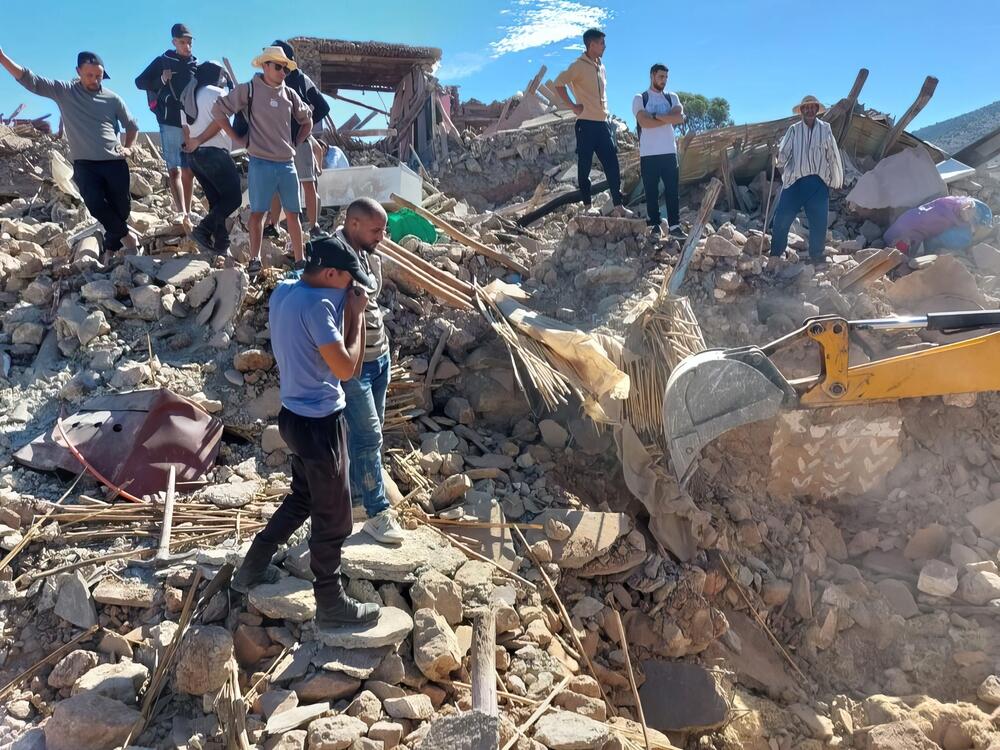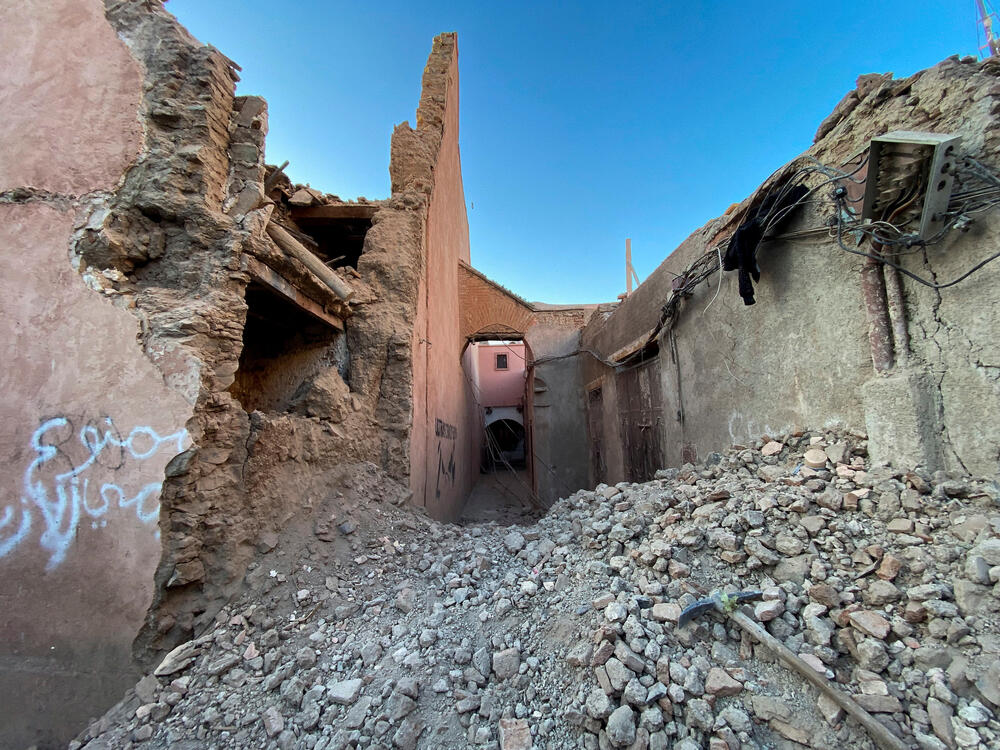What is MSF doing?
- MSF is in contact with local authorities, assessing humanitarian needs and understanding the response that is needed.
- We have four expert teams already on the ground, including emergency doctors, nurses and logisticians.
- We are prioritising remote and rural communities close to the epicentre in the High Atlas Mountains, south of Marakesh. Some areas have been difficult to reach as roads have been affected by the earthquake.
- Our teams have reached multiple towns and villages in the Souss Massa, Al Haouz, and Chichaoua provinces. In many places, the destruction has been dramatic.
- We have also donated much-needed medical supplies to healthcare facilities in Souss Massa and Al Haouz.
- People in hard-hit villages will likely require assistance, including food, while access to healthcare was already limited before the disaster.
Earthquake response
As with all earthquakes, the search for people buried under the rubble is the priority, and this phase is often handled by local solidarity.
Communication and supply routes also need to be quickly re-established, as these are the prerequisites for the deployment of aid supplies from outside the affected areas.
In this type of humanitarian emergency, we need to care for the wounded and perform medical acts quickly – such as surgery or dialysis – which can be a challenge when local healthcare is severely affected by a disaster.
Restoring health services and distributing essential goods can also be priorities. Our response will therefore depend on the results of these initial on-site assessments.

